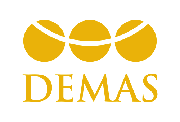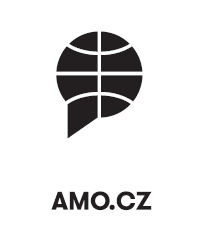An East-West divide in the European Union? Analysis of selected policy areas
The East-West divide in the EU has become a topic in discussions over EU affairs. The Debate often measures cultural, national, or sociological differences. In this paper, the aim was to look at the decision-making processes among the EU member states and to try to assess whether the coalitions formed when dealing with important EU issues give us a hint on whether it is possible to talk about an East-West divide. Specifically, we focus on the areas of climate policy, multi-annual financial framework, and migration. These three examples of policy areas show that while conceptually tempting, the notion of an East-West divide is also simplistic and does not find support in reality.
Stop Worrying and Learn to Love the (Soft)Transactional Approach to NATO
After a period of optimism about the future of NATO following renewed threat of Russia after 2014, the era of the Trump presidency brought significant anxiety into discussions about North Atlantic Alliance cohesion and longevity. The authors argue that while it might be tempting to see the Trump era as an aberration in transatlantic relations, there are in fact major structural forces undermining some of the pillars of NATO, including its unity and mutual sense of friendship among its members. The paper suggests recasting NATO as a more pragmatic alliance, which may require greater commitment from the European members, but at the same time allow NATO to withstand structural changes in both domestic and international arenas.
New Impulses for Czech Strategy in Africa
Africa has only been a marginal topic for Czech foreign policy since the split of Czechoslovakia. This trend reached its nadir in 2011. However, the situation has started to change in the last decade. Czech foreign policy has gradually adopted sub-Saharan Africa as its new vector and stabilization of the Sahel region has become one of its strategic priorities, as confirmed by the “Sahel strategy” (2018) and the “Africa program” (2020). Association for International Affairs (AMO) presents a policy paper which analyses the current Czech approach toward Africa. There is an attempt to define a priority region and target the activities of the Czech Republic toward this region. However, a lack of long-term perspectives, an inability to define clear and achievable goals, absence of previous ties with the selected region and limited resources and capacities are key barriers to effective involvement. Moreover, the public debate about Czech activities on the continent is missing and participation of civil society is limited. This policy paper wishes to foster such a debate and aims to highlight the key questions that stakeholders and the public should ask about Czech strategic interests in Africa.
Agenda for Czech Foreign Policy 2020
Czech foreign policy has long been one of the main areas of interest of the Association for International Affairs (AMO). This year you can read what is already the fourteenth edition of the Agenda for Czech Foreign Policy (first published in 2007).
The annual publication of the Association for International Affairs (AMO) traditionally aims to analyse and evaluate the Czech Republic’s foreign policy in the past twelve months from an expert and normative point of view and to provide its creators and actors with feedback and recommendations for its fu ture direction. However, the publication is not only intended for them – as a comprehensive overview of foreign policy events in the past year; it can also be a valuable resource for members of the expert community, journalists, students of international relations and interested members of the general public. It is evident that the near-term fu ture of international relations will be fundamentally affected by the COVID-19 pandemic, which naturally frames many chapters in this year’s edition of the Agenda. Structure of the publication has undergone several changes compared to last year. It still contains chapters dedicated to specifi c regions of the world and the Czech foreign policy actions in them. This year, we decided to include a chapter on Czech policy in Africa. In addition, this time the Agenda also includes thematically focused parts. In them, we want to draw attention to issues that we consider important for Czech foreign policy: the upcoming Czech Presidency of the Council of the EU, EU enlargement and the Czech Republic’s climate policy. The introductory chapter provides a general overview of the current situation in international politics and the role of the Czech Republic within it.

